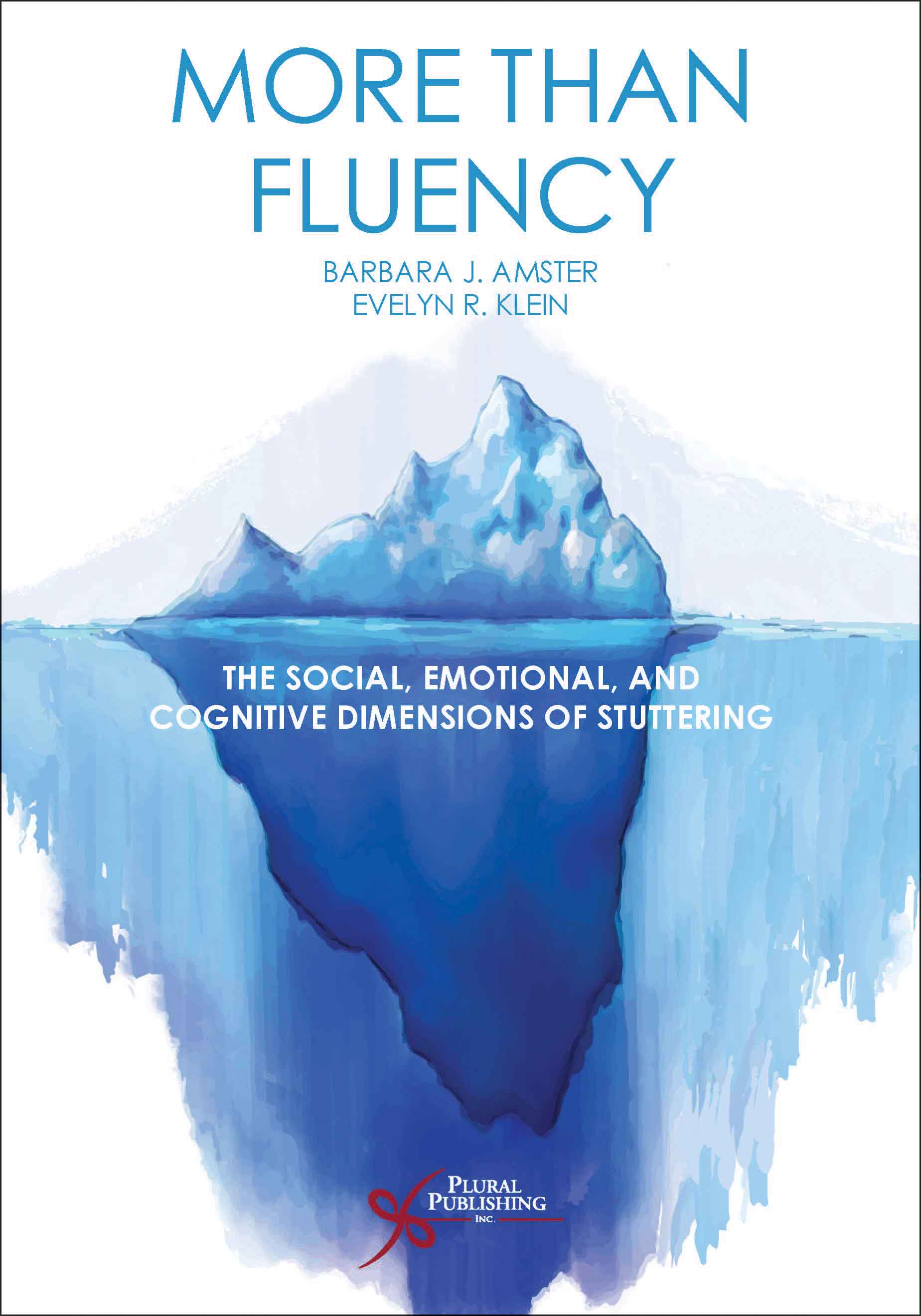
More Than Fluency: The Social, Emotional, and Cognitive Dimensions of Stuttering
First Edition
Barbara J. Amster, Evelyn R. Klein
Details: 242 pages, B&W, Softcover, 7" x 10"
ISBN13: 978-1-59756-995-8
© 2018 | Available
For Instructors
Purchase
More Than Fluency: The Social, Emotional, and Cognitive Dimensions of Stutteringprovides a thoughtful and contemporary framework for speech-language pathologists and others working with people who stutter. The text focuses on the social, emotional, and cognitive realms of stuttering and offers new insights and applications based on research in the field. It guides the reader through theoretical discussions about the social experiences, emotional complications, and cognitive interpretations that often influence the person who stutters. The text also offers practical strategies for intervention from contributing authors who are prominent theorists, researchers, and practitioners in the field of fluency and stuttering.
In line with the current multifactorial view of stuttering, More Than Fluency emphasizes the social, emotional, and cognitive aspects of stuttering, drawing important connections between them. The authors present a variety of therapeutic interventions and techniques along with practical guidelines that have been designed to alleviate distress in those who stutter. Although these interventions differ in approach, each offers their own roadmap to support and empower people who stutter.
The idea for this book grew out of the insights gained from listening to both clients and graduate students. Clients wanted to talk about their life experiences as a person who stutters. Graduate students often described their worry and uncertainty when dealing with the emotional and social issues of their clients who stutter. Similarly, many practicing speech-language pathologists also have concerns about treating people who stutter, especially regarding the social, emotional, and cognitive aspects of the disorder, areas not typically taught in traditional coursework.
More Than Fluency was developed for practicing speech-language pathologists and other professionals who evaluate and treat people who stutter. It is also intended to be an academic textbook used in graduate courses on fluency and stuttering. This text provides a collection of well-thought-out programs and approaches that help treat the whole person, not just his or her stuttering. The authors believe that this is best practice because successfully treating a person who stutters encompasses treating more than fluency.
Reviews
"The central theme of this book and much of the contents captures a niche area in stuttering that has been void. Several of the chapters present relatable poignant examples and guide the reader through practical applications of the generally framed psychologically-focused approaches targeting the social, emotional, and cognitive dimensions of stuttering, as stated in the book’s title. Many of the book’s chapters begin with an introductory theoretical framing, used as a referent throughout the chapter, that continues to a brief 'state of the literature section', which is then followed by the lived experiences of stuttering from PWS with statements supporting the framing and evidence. Many chapter authors then present an easily accessible guided practical application of the concepts before summarizing the content. This thoughtfully sequenced presentation further enhances the accessibility of an engaging and readable text typically written in an informal dialogue-like style. For example, the text is written at a level that undergraduate students through introductory SLPs not specializing in stuttering can easily gain insight into the lived experience of stuttering as well as glean general framing of certain approaches and practical strategies for evidence-based functionally-focused holistic therapy. The approaches are presented through a general practical framework that isn’t overly obtrusive or laden with high densities of intense content. Similarly, intermediate-level clinicians, who are generally knowledgeable about stuttering from clinical and evidence standpoints, may find benefit from the text through the relatable examples and client statements envisioned through the applied framings. Such professionals may find added benefit from the text by integrating their foundational and advanced clinical knowledge with the presented concepts. Instructors of fluency disorder courses and clinicians with advanced expertise in stuttering, again who are up to date on the corpus of literature within the field, should be able to connect the dots with many of the statements and concepts provided that elude to the more nuanced details not explicitly presented in the book. Again, most of the content covered in the book could be of use to a wide array of people interested in stuttering."
—Dan Hudock, PhD, CCC-SLP, Idaho State University, in Journal of Fluency Disorders (September 2019)
"This book is comprised of 12 chapters – 10 content chapters bookended by an introductory first and concluding last chapter written by the editors – that span theoretical and clinical accounts of various social, emotional, and cognitive issues that affect people who stutter. [...] It leans towards a practice-based text as each chapter presents ways to augment therapeutic interventions for people who stutter. In this way, I believe this book would be well-suited as a supplemental resource for an advanced stuttering course for graduate student clinicians or for more seasoned clinicians who might be seeking a newfound spring in their therapeutic step. The editors and authors who contributed to this book are commended for their efforts to provide clincians with an insider’s view of the thoughts and feelings that are so often experienced by people who stutter, and the ways in which they can facilitate the change that leads to positive outcomes in therapy."
—Naomi H. Rodgers, PhD, CCC-SLP, University of Iowa, in Journal of Fluency Disorders (September 2019)
Foreword by John A. Tetnowski, PhD
Acknowledgments
Contributors
Reviewers
Chapter 1. Introduction: The Importance of the Social, Emotional, and Cognitive Dimensions of Stuttering
Barbara J. Amster and Evelyn R. Klein
Chapter 2. How the Brain Influences the Cognitive, Emotional, and Motor Aspects of Stuttering
Jennifer Kleinow
Chapter 3. The Importance of Self-Efficacy for Individuals Who Stutter
Michael P. Boyle
Chapter 4. A Perspective on Stuttering in the Social Context
James M. Mancinelli
Chapter 5. The Impact of Perfectionism on Stuttering
Barbara J. Amster and Evelyn R. Klein
Chapter 6. Cognitive Behavioral Therapy (CBT) for People Who Stutter
Evelyn R. Klein and Barbara J. Amster
Chapter 7. Acceptance and Commitment Therapy for Stuttering Disorders
Janet M. Beilby and J. Scott Yaruss
Chapter 8. Experiential Therapy for Adults Who Stutter: Principles and Methods
C. Woodruff Starkweather and Janet Givens
Chapter 9. Avoidance Reduction Therapy for Stuttering (ARTS®)
Vivian Sisskin
Chapter 10. Peer Support for People Who Stutter: History, Benefits, and Accessibility
Mitchell Trichon and Erik X. Raj
Chapter 11. Community-Centered Assessment and Treatment: Targeting the Social, Emotional, and Cognitive Aspects of Stuttering in Children
Craig Coleman
Chapter 12. Final Thoughts
Barbara J. Amster and Evelyn R. Klein
Index
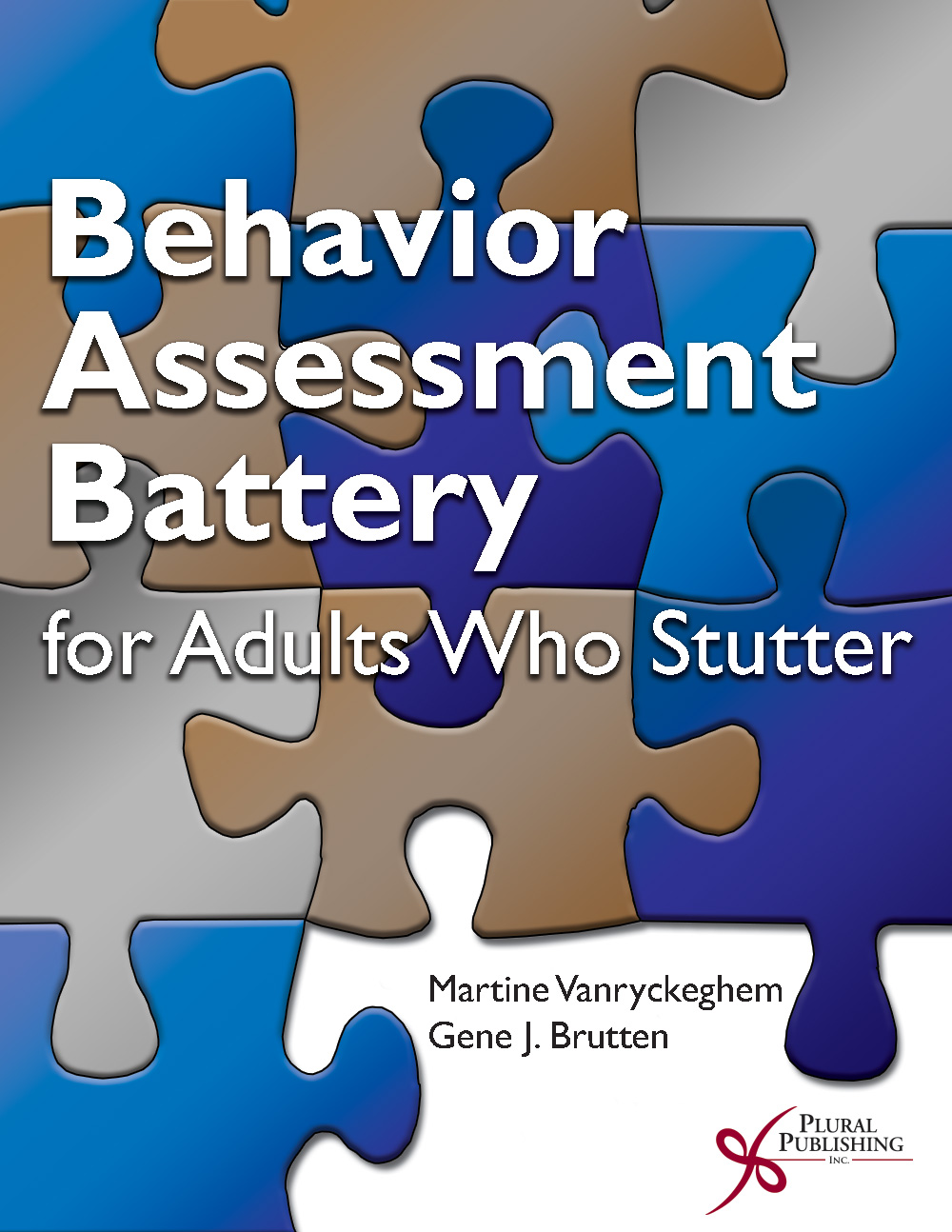
Behavior Assessment Battery for Adults Who Stutter (Online Access)
First Edition
Martine Vanryckeghem, Gene J. Brutten
Details: Online Access
ISBN13: 978-1-59756-901-9
© 2018 | Available
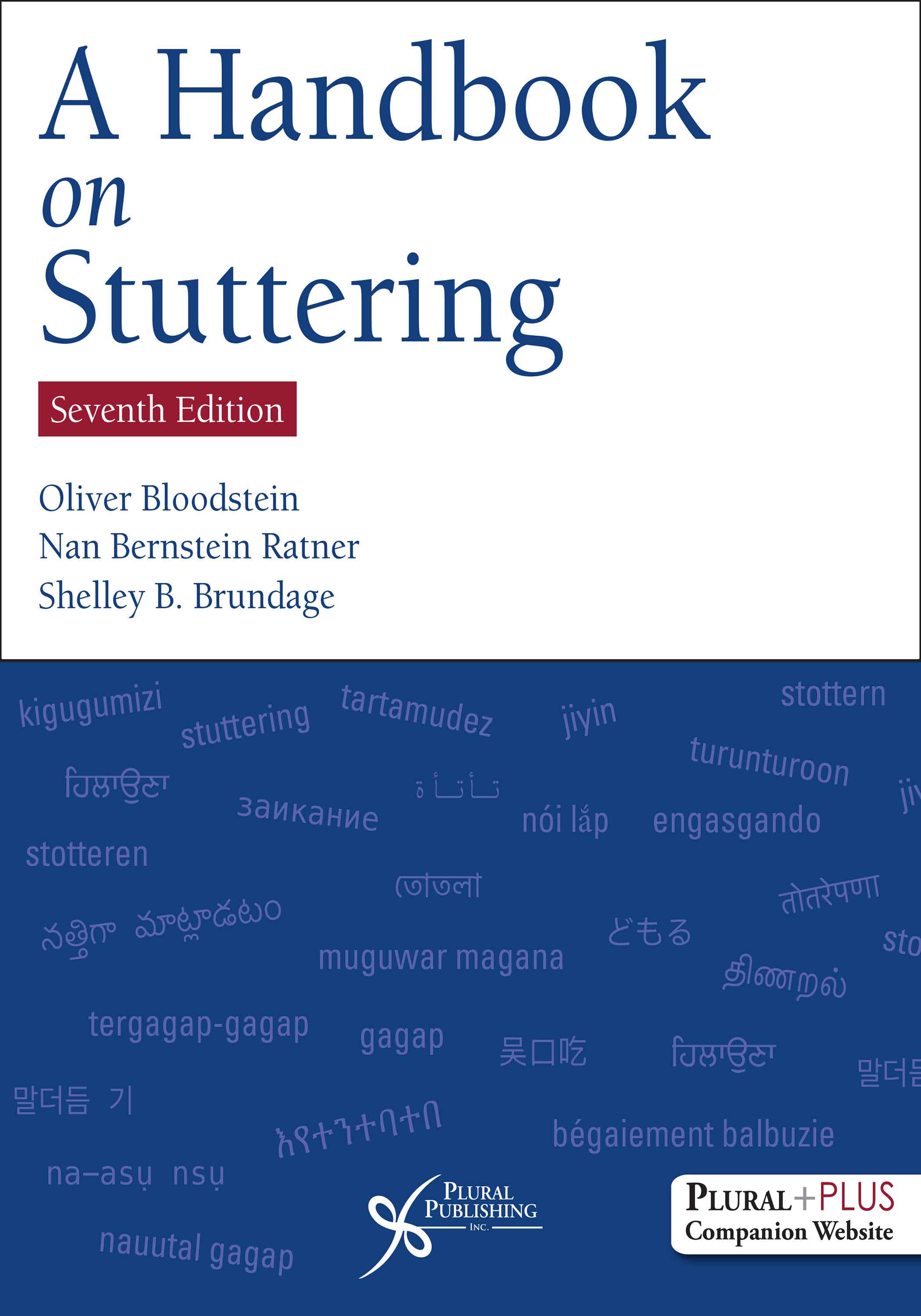
A Handbook on Stuttering
Seventh Edition
Oliver Bloodstein, Nan Bernstein Ratner, Shelley B. Brundage
Details: 581 pages, B&W, Hardcover, 8.5" x 11"
ISBN13: 978-1-63550-317-3
© 2021 | Available
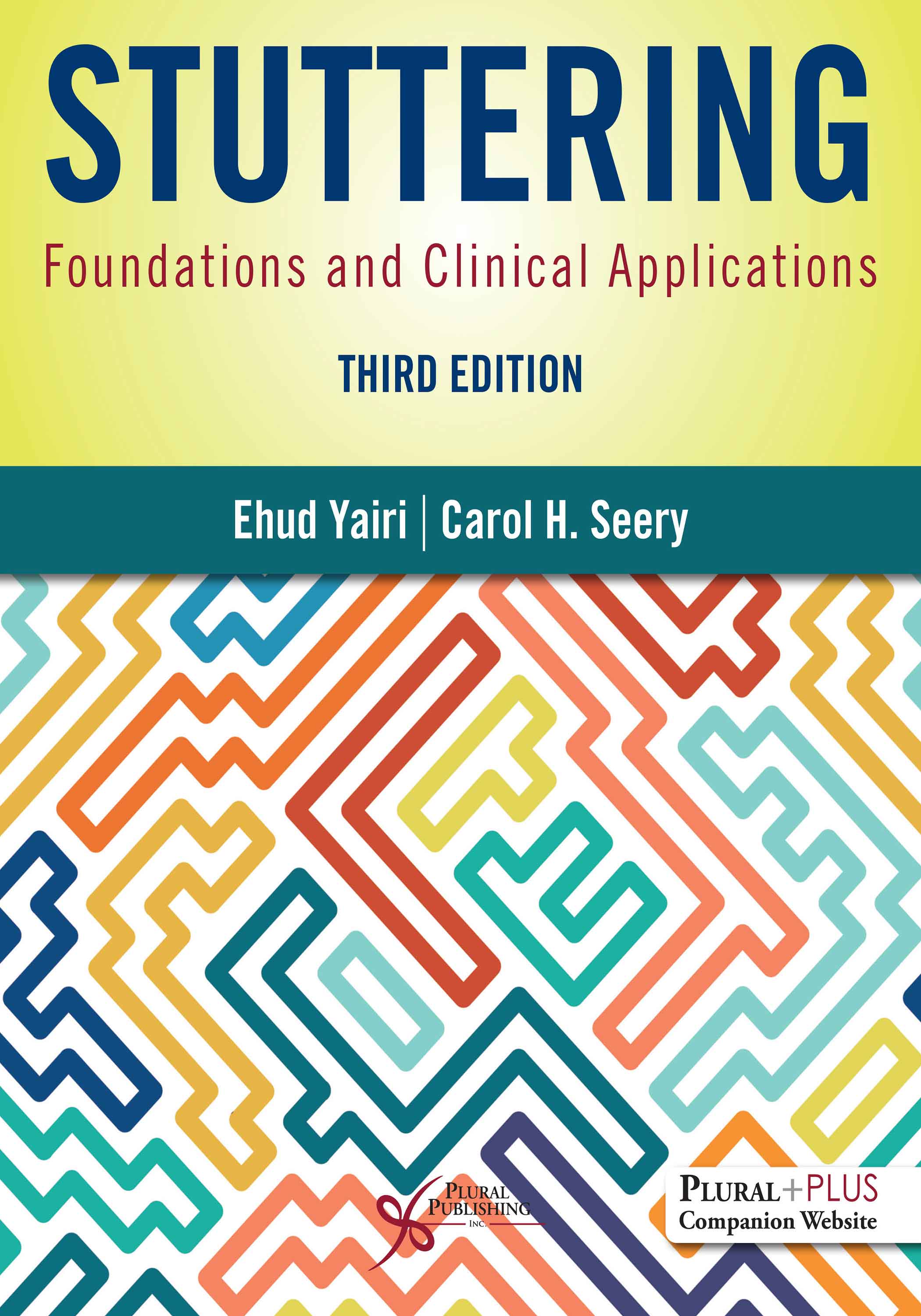
Stuttering: Foundations and Clinical Applications.
Third Edition
Ehud Yairi, Carol H. Seery
Details: 465 pages, B&W, Softcover, 8.5" x 11"
ISBN13: 978-1-63550-355-5
© 2023 | Available
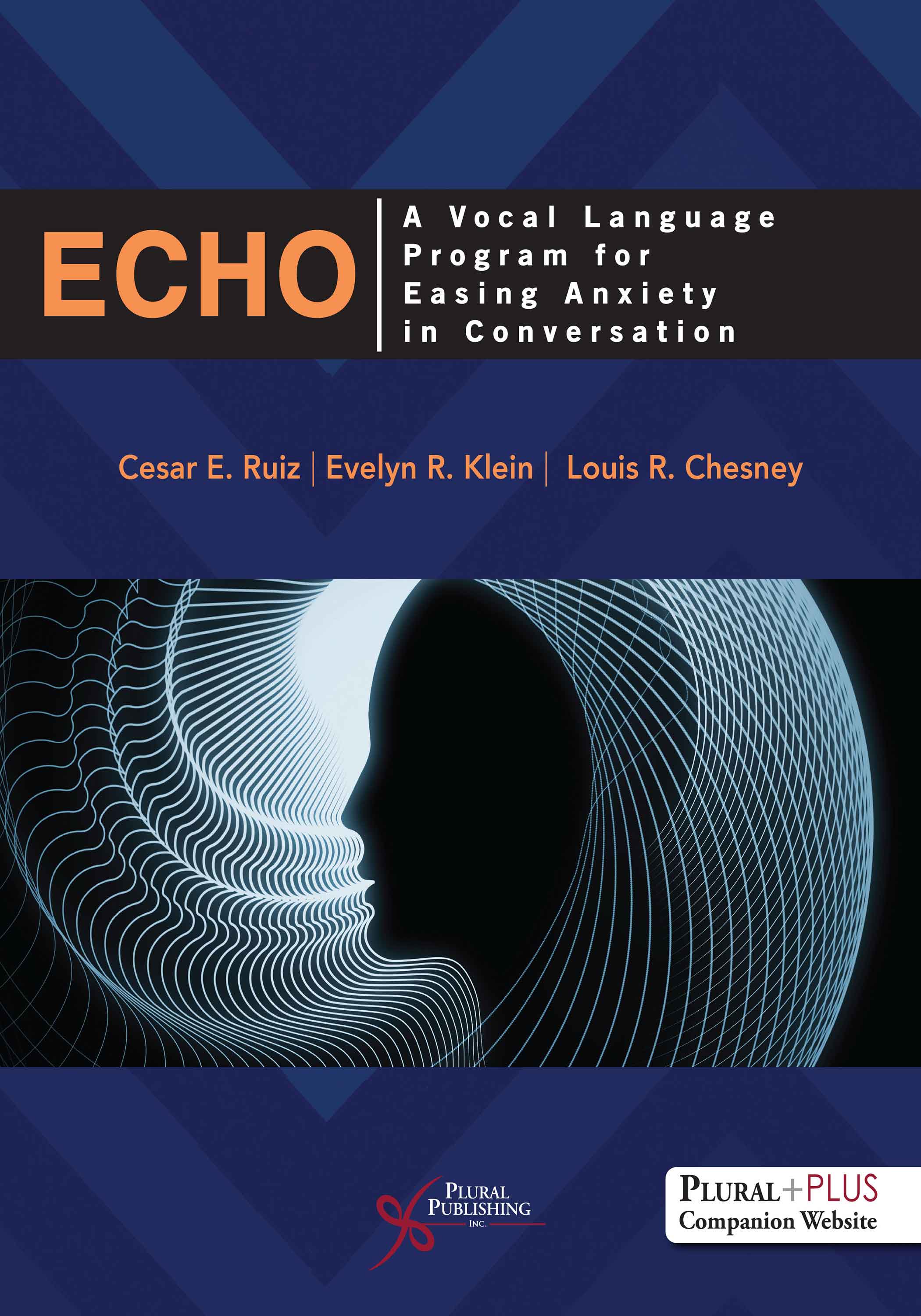
ECHO: A Vocal Language Program for Easing Anxiety in Conversation
First Edition
Cesar E. Ruiz, Evelyn R. Klein, Louis R. Chesney
Details: 225 pages, B&W, Softcover, 8.5" x 11"
ISBN13: 978-1-63550-330-2
© 2022 | Available
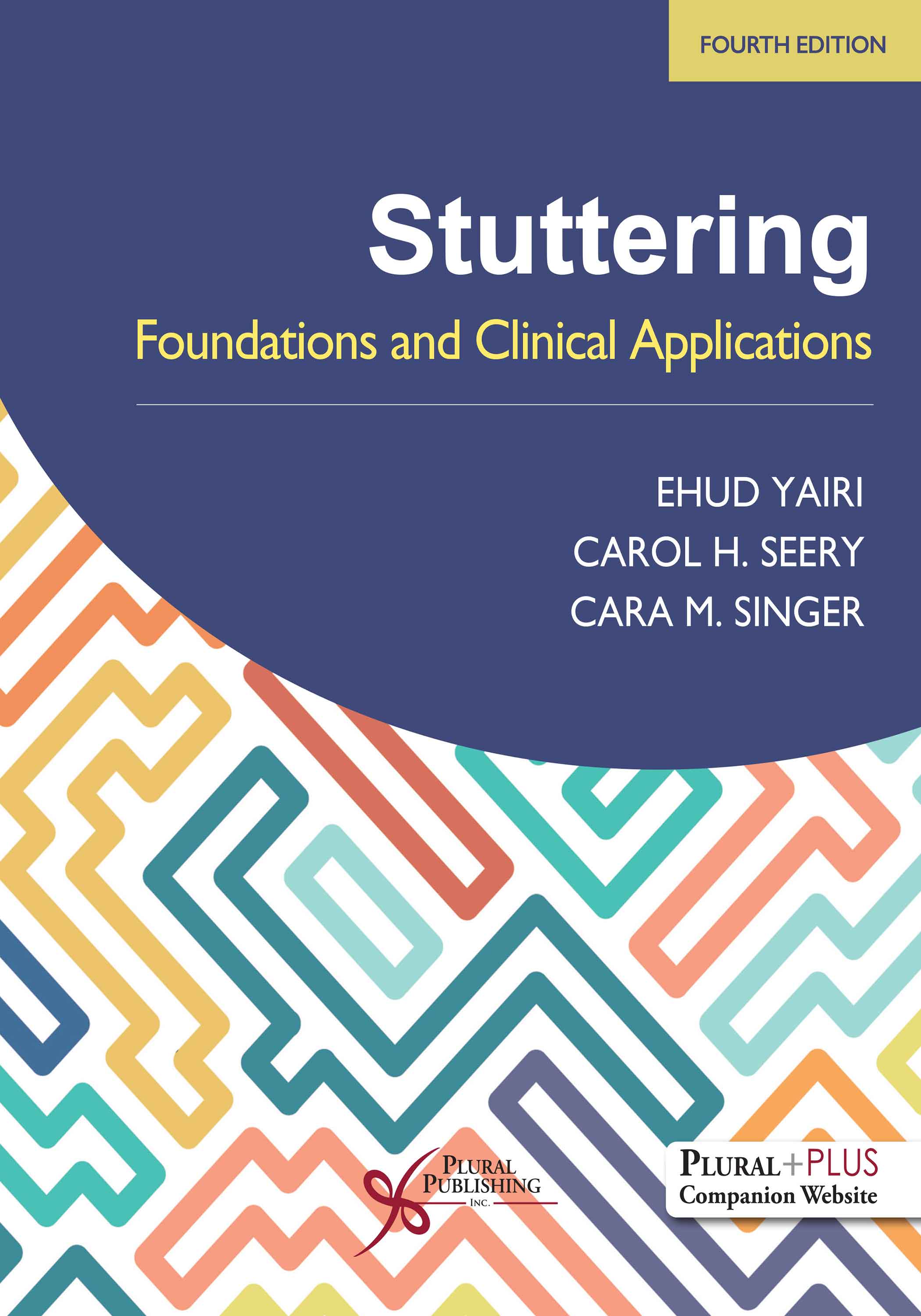
Stuttering: Foundations and Clinical Applications
Fourth Edition
Ehud Yairi, Carol H. Seery, Cara M. Singer
Details: 500 pages, B&W, Softcover, 8.5" x 11"
ISBN13: 978-1-63550-774-4
© 2027 | Coming Soon
Release Date: 09/01/2025


